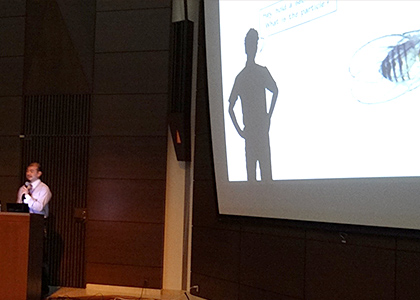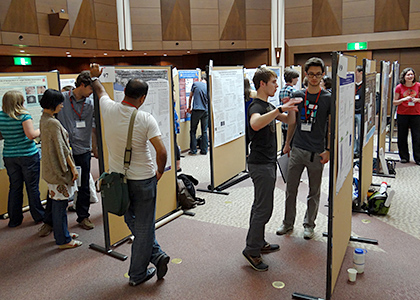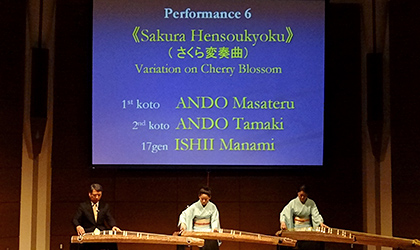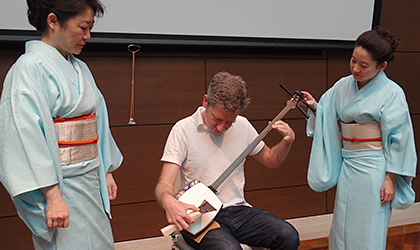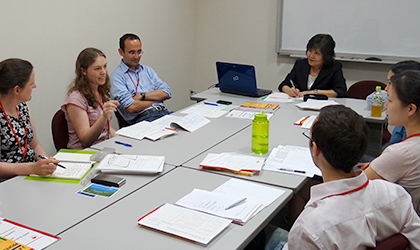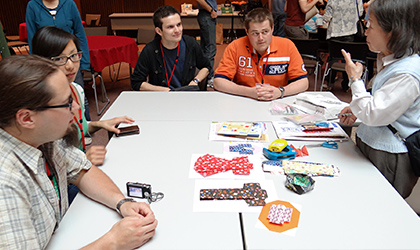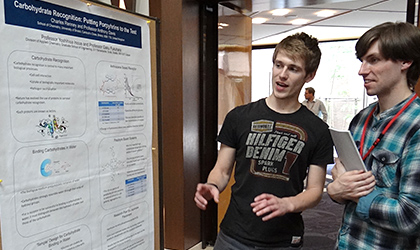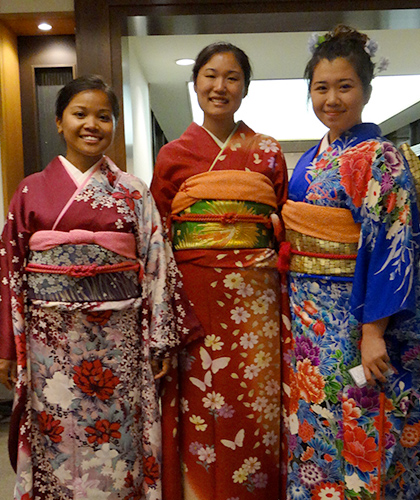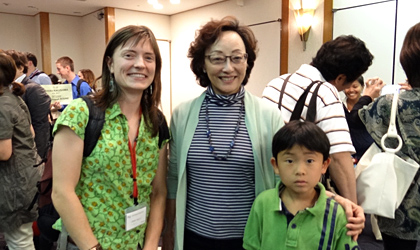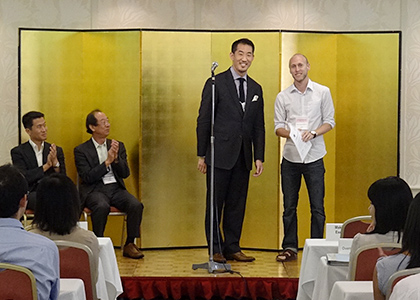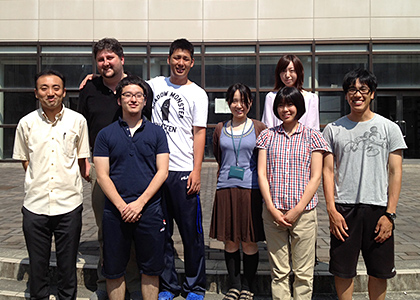Past Articles 2012
JSPS Summer Program 2012
<Date> From Wednesday, June 13, to Tuesday, August 21, 2012
<Participants> 109 fellows in the JSPS Summer Program
Orientation
One hundred and nine young pre- and post-doctoral researchers from the USA, the UK, France, Germany, and Canada came to Japan for the JSPS Summer Program 2012, which started on June 13, 2012. Though it was the rainy season, soft sunlight welcomed the 109 fellows who arrived in Hayama on motor coaches, all filled with anticipation for their coming two months of research activity in Japan.
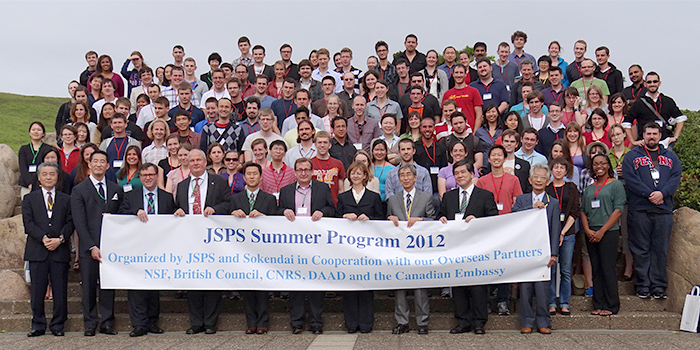
The Opening Ceremony began with an address by Dr. Nagano, the vice president of SOKENDAI. Many JSPS guests and Nominating Authorities also attended the ceremony. In the evening, many fellows enjoyed long conversations with their host researchers in Japan, the faculty members in SOKENDAI and the students who had participated in the SOKENDAI lecture. Thus, interaction among researchers from diverse fields and different cultures actively started.
On the second day, two special lectures on the leading edge of researches in Japan were held. The lectures appeared to interest the fellows.
Dr. Prashant Pardeshi from the National Institute for Japanese Language and Linguistics (NINJAL) in Tokyo gave an interesting lecture from the viewpoint of understanding Japanese cultures and customs. The contents of the lecture impressed beginning and intermediate Japanese language learners and drew many questions from fellows.
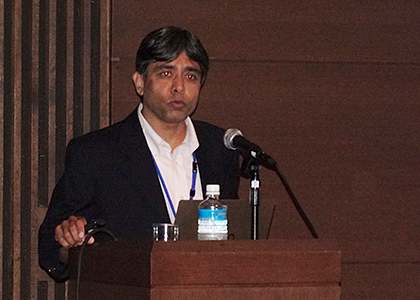
Subsequently, Dr. Takanori Hara of the High Energy Accelerator Research Organization (KEK) and Institute of Particle and Nuclear Studies (ISPS) gave an interactive lecture on the "Unanswered Mysteries of the Universe." Dr. Hara's performance caused waves of laughter, and many fellows readily answered the questions he posed during his lecture.
During this orientation program, the fellows willingly attended Japanese language classes to learn more practical Japanese. Their attitudes demonstrated their enthusiasm for the upcoming two months of research activity. When they were introduced to aspects of Japanese culture (e.g., tea ceremonies, calligraphy, folding paper crafts, kimonos), the local media reported on the exchange activity between the fellows and locals in the story "16th June Kanagawa Shinbun." At the poster session, in which SOKENDAI students also participated, many positive opinions were exchanged. On the weekend, the fellows spent two nights with Japanese families they had been designated to, which gave them an opportunity to have memorable experiences. Some of them visited the Big Buddha in Kamakura and onsen (hot spring) in Hakone, or stayed in Hayama to fish and surf. The parting of the families and fellows was somewhat emotional and involved much hugging and tears on the part of children.
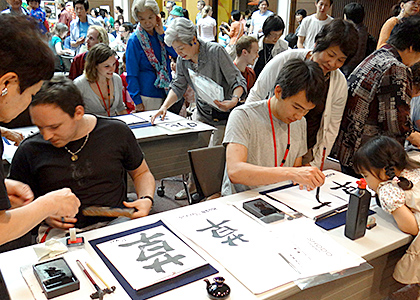
On June 18, Dr. Masateru Ando, a former professor at the Tokyo University of the Arts, gave a lecture on traditional Japanese music. Dr. Ando explained about Japanese traditional instruments, and six compositions were performed using a regular koto, a 17-stringed koto, shakuhachi, and shamisen. After the last performance, "Sakura Henso Kyoku - The Cherry Blossoms Variation," enthusiastic fellows gave Dr. Ando and the other koto players a standing ovation. After the question period, the fellows formed a long line to examine the koto, shakuhachi, and shamisen.
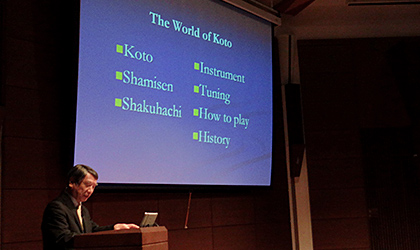
Although it was held during the rainy season, this year's orientation program met with good weather until the last day (June 16) of the one-week orientation, when an unseasonable typhoon hit Japan. The fellows were worried about travelling to the western part of Japan. Nevertheless, after the orientation in Hayama was concluded, all but two fellows, who were going to stay in Shikoku, departed to their host institutions/organizations with their aspirations intact.
We hope this summer program was valuable for the fellows and that, with their youthful energy, they will promote education at universities and international academic exchanges in Japan in the future.
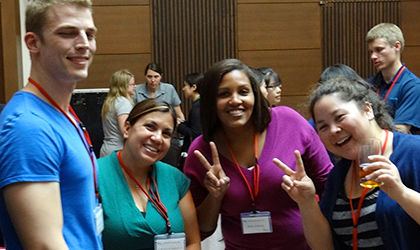
Research Report Presentation & Farewell Party
On August 21, 2012, 108 young researchers from the USA, the UK, France, Germany and Canada, gathered at the Hotel Grand Palace to attend the Research Report Presentation and Farewell Party after spending two months engaged in research activities in host institutions all over Japan. At the presentation, six representative fellows presented the research objectives they had accomplished during their stay in Japan and reflected on their impressions of their stay. After the presentations, the participants actively discussed their research fields, and Dr. Asashima, Executive Director of JSPS, posed a question to a presenter who had conducted biological research.
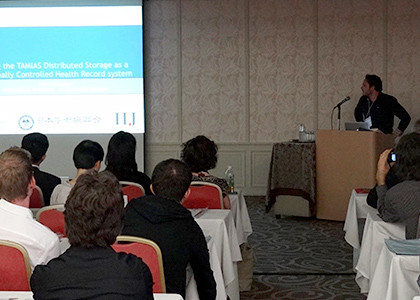
The Farewell Party followed the presentations, and all 170 participants, including the host researchers and Dr. Masateru Ando (who had given an excellent koto performance at the orientation in June), attended. In this manner, the fellows' fruitful two-month stay in Japan was concluded. Many fellows enjoyed not only this reunion with other fellows but also the conversations about their research, their results, their remarkable growth, and the significance of this program.
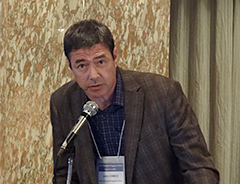
At this year's Farewell Party, Dr. John Eimes, a former fellow who had returned to Japan after finishing the summer program to continue his research on a JSPS Postdoctoral Fellowship (short-term) for North American and European Researchers, gave a presentation. The fellows showed great interest in Dr. Eimes's experience.
The followings messages are from some JSPS Summer Program fellows who stayed at SOKENDAI host institutions.
Ben J. DRYER
(BC:The Institute of Space and Astronautical Science, Japan Aerospace Exploration Agency/The Open University Physical Sciences)
"What is the most impressed thing in this program"
Being able to work closely with an international researcher, strengthening the relationship between my home and the host institution, allowing better cross-collaboration in future.
"About the orientation programs organized by SOKENDAI"
All of the arranged activities were useful or at least interesting. The amount of time spent doing organized things was very suitable, as it was not too stressful and so allowed time to socialize with other fellows, the connections formed being very useful for later in the program.
"Short message about this summer programs"
The orientation was very enjoyable and prepared well for the experience of life in Japan. The experience of working at an international centre of excellence such as JAXA and gaining contacts within such an organisation will be invaluable to me and to my home institution. This is a program I would recommend to anyone who wishes to found contacts in Japan and experience Japanese culture.
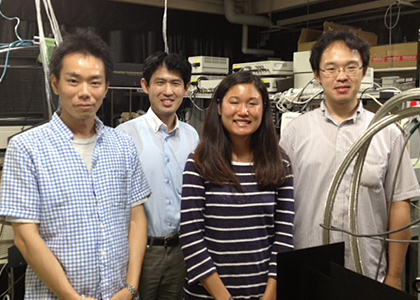
Rachael TOMASINO
(NSF:The Institute of Space and Astronautical Science/University of Denver Astrophysics)
"How was your research through this program"
My research went pretty slow in the beginning. It was a bit difficult to balance working and living in Japan. There was so much that I wanted to see and do. Towards the end, I think the novelty of living here wore off and I was able to focus more on my work.
"About the Orientation program"
The Japanese language classes could have been useful but they were too intense. There were too many topics covered especially for someone like me who has a hard time learning languages. I appreciate the classes and the books but the classes were just overwhelming. The Japanese culture sessions where very informative and enjoyable.
"About the Home stay program"
I enjoyed staying with my host family very much. I planned on staying with them again during the summer but due to work and lack of planning, I wasn't able to see them again.
"Short message about this summer programs"
Make sure to get out of the office/lab and see all the wonders of Japan. It is worth it.

